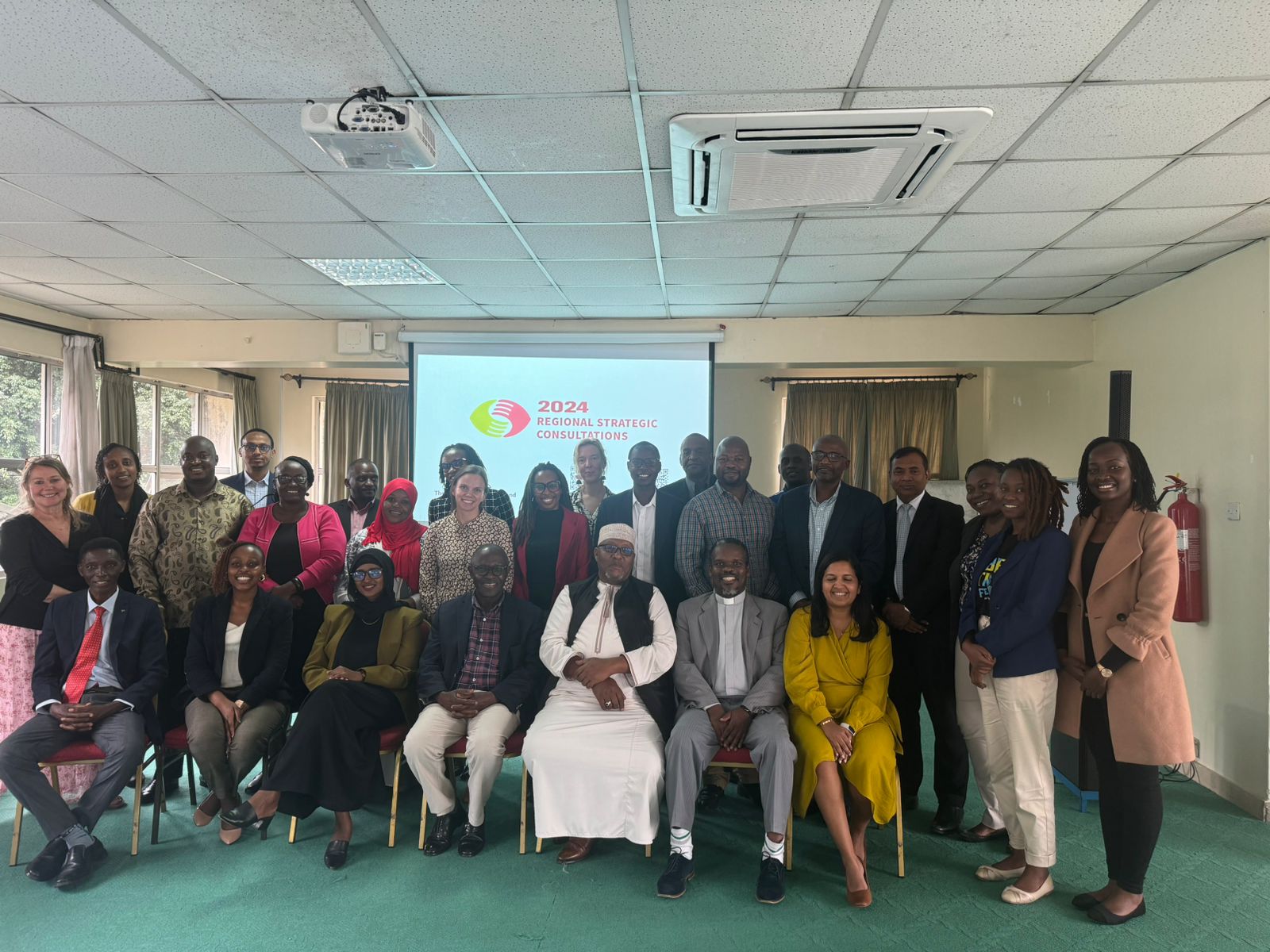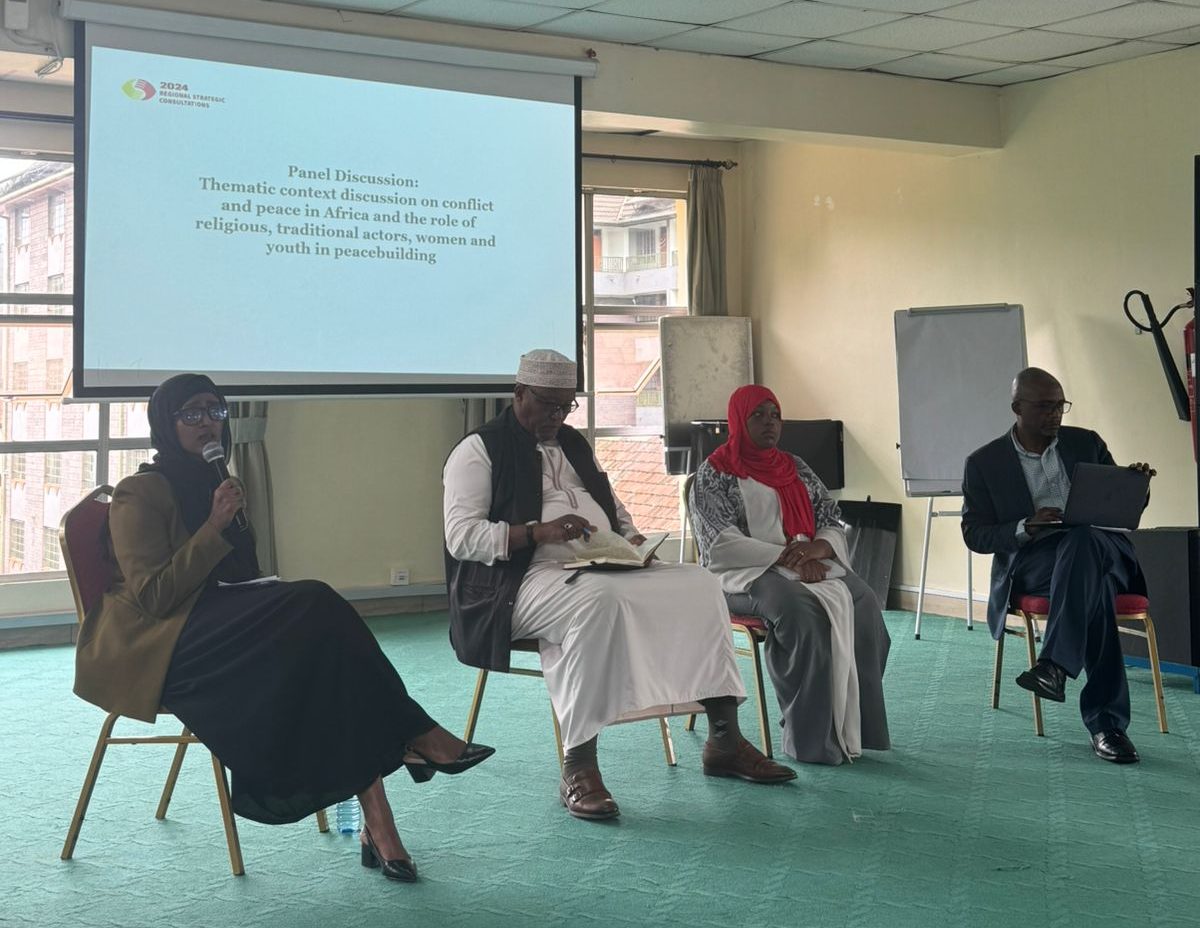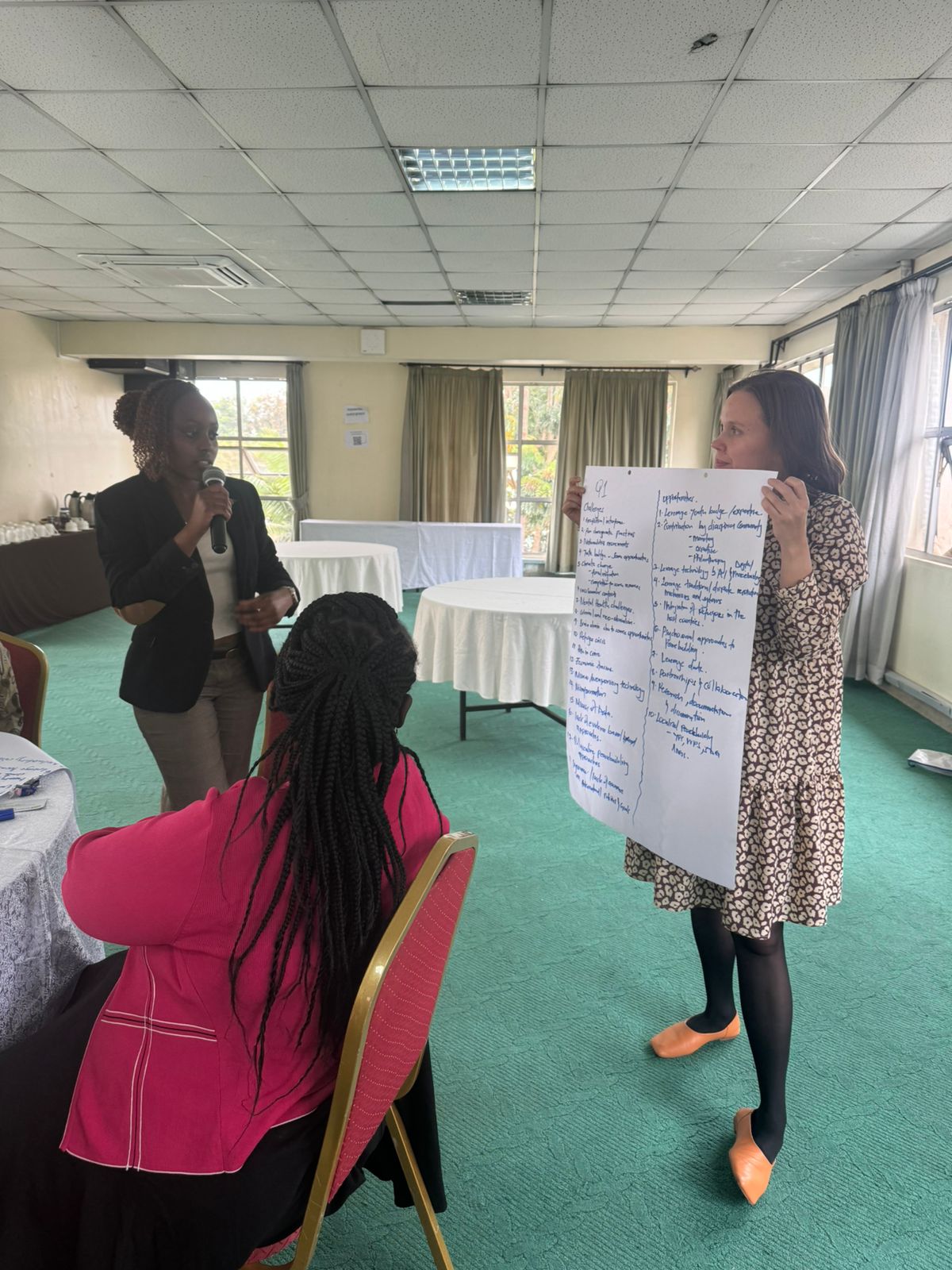Strategic Consultation with Members, Partners, and Supporters of the Peacemakers Network in Nairobi
September 2024
In 2019, the Peacemakers Network’s Steering group, members, supporters, and the Network Secretariat adopted its first Strategy for 2020-2025. This document formalized the vision and mission, approaches and methods, and strategic priorities of the Peacemakers Network.
As the end of the current strategy period approaches, the Secretariat will consult with members, supporters, and partners to evaluate the efficacy of the strategy and determine best mechanisms to improve collaborative efforts to ensure the Peacemakers Network can effectively support peace in a multipolar world. The regional and country consultations are designed to strengthen the Peacemakers Network by ensuring localized interactions between members and supporters, creating opportunities for localized partnerships, and allowing for greater ownership of the next strategy from the onset of its development.
First Regional Strategic Consultation in Nairobi, Kenya
Towards this objective, the Peacemakers Network organized a Strategic Consultation for its members, partners, and supporters in Nairobi, Kenya between the 23rd-25th of September 2024. 30 participants provided key inputs about the effectiveness and impact of the current strategy as well as recommendations for the next strategic period. The consultation also provided a networking opportunity for the members and supporters to strengthen existing relationships and provide new openings for future collaboration.

Group photo of participants at the Nairobi Strategic Consultation. 2024.
Day 1 Highlights
The consultation began with an overview of the Peacemakers Network’s programming and focus areas in Africa, highlighting and sharing the activities and insights of Network members and supporters in the region over the past year in alignment with the Peacemakers Network’s strategic priorities. Members who presented include Finn Church Aid (FCA), Reimagining New Communities, Muslims for Human Rights (MUHURI), and Green String Network (GSN).
The first day of the consultation included a panel discussion aimed at contextualizing and setting the scene for upcoming discussions by reflecting on the geopolitical implications to peace and security in the region, considering world events as well as recent events in the continent, and identifying the main conflict drivers in Africa today. The panel also consiered the major challenges and successes of peacebuilders including religious and traditional actors in this context, as well as future trends in conflict prevention and peacebuilding.

Panel discussion moderated by Aziza Maalim, FCA/Peacemakers Network’s Advisor with panelists Sheikh Ibrahim Lethome, Zena Hassan, and Fr. Professor Elias Opongo. 2024.
The next session focused on the successes and challenges of implementing the Peacemakers Network’s five strategic priority areas in peacebuilding over the last four years in Africa. Participants identified what is working well and where the challenges still lie. Participants identified the main barriers to advancing inclusive peace and participants in all tracks, the support required and identified opportunities and solutions moving forward. Recommendations that addresses the challenges include:
• Innovative Resource Mobilization: Seeking new funding sources to support peace initiatives.
• Building Alliances: Supporting networks that foster active citizenship and governance.
• Advocacy for Inclusive Governance: Promoting policies that include youth and marginalized groups in decision-making processes.
• Strengthening Local Organizations: Building the capacities of community-based and civil society organizations.
• Enhancing Trust: Fostering collaborative relationships between rights holders and duty bearers to build trust and accountability.
The final session discussed successful approaches to partnerships and funding with examples from members. Network members shared examples of innovative partnerships and access to funding and the lessons learned from these cases, highlighting the JISRA project focused on promoting freedom of religion and belief.
Day 2 Highlights
On the second day of the consultation, participants engaged in group work to conduct a detailed analysis of the current strategy’s relevance. They examined what aspects were effective, what had become outdated, and what strategic priorities, approaches, working modalities, and thematic areas should shape the 2025-2030 strategy. Building on the identified needs, opportunities, and priorities, participants were asked to propose one tangible initiative for joint implementation by 2025, along with three additional initiatives by 2030. For each, they outlined responsibilities, assessed available resources, and established timelines.

Paula Tarvainen, Senior Advisor of Right to Peace, facilitating group discussions. 2024.
Day 3 Highlights
On the final day of the consultation, Network members gathered to reflect on the key findings from the mid-term evaluation of the strategic plan. The second half of the day included a collaborative meeting between the Network Secretariat and colleagues from FCA as part of FCA’s Right to Peace Community of Practice. This session focused on enhancing cooperation between the two organizations to strengthen efforts in conflict prevention and peacebuilding across Africa and beyond.
Follow the Network on social
